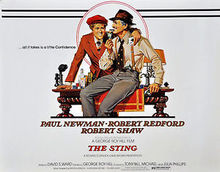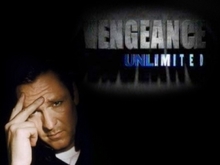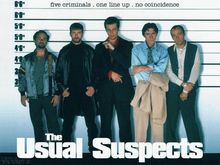My Top Five Con Games
 A few weeks ago I was looking at my favourite heist movies, and I was struck by the realization that a heist is not a con. It’s not that the two can’t occasionally overlap, it’s just that there are distinctions with shove each of them into their own sub-genres.
A few weeks ago I was looking at my favourite heist movies, and I was struck by the realization that a heist is not a con. It’s not that the two can’t occasionally overlap, it’s just that there are distinctions with shove each of them into their own sub-genres.
This doesn’t mean that a con game doesn’t result in something – and occasionally someone – being stolen, or taken, or perhaps recovered. The point is that looked at a certain way, a con game isn’t a theft, it’s an act of persuasion. You don’t steal the item, you persuade the owner to give it to you.
There’s a simple element that can make the con game more palatable to audiences in general: you can’t cheat an honest man. The marks are always greedy, and the con artist uses that greed against them. It’s not theft, in a con game, the artist gets someone to give them the target item willingly. In the best examples, the mark never even knows what’s happened. And that’s why a common trope of the con, or sting, is that it involves no violence, often not even pretended violence.
 A con game achieves its goal not through strength or force, however cunning. Rather, it depends on the creation of a fiction which takes in everyone else, often up to and including the audience. If you don’t trick people, then it’s not a con. This often elaborate pretense forms the foundation of the plot. Sure we get the why, and the what, but most of the entertainment is in the how.
A con game achieves its goal not through strength or force, however cunning. Rather, it depends on the creation of a fiction which takes in everyone else, often up to and including the audience. If you don’t trick people, then it’s not a con. This often elaborate pretense forms the foundation of the plot. Sure we get the why, and the what, but most of the entertainment is in the how.
In the comments on my heist-movie post, “Joe H.” observed that there are two ways for such films to go “either the meticulous plan goes pear-shaped and they have to improvise their way out, or the plan seems to be going off the rails but there’s a sudden reveal/reverse at the end.” He cited Ocean’s Eleven as the best example of this in a heist film. As far as I’m concerned no con game film illustrates this principle as beautifully as The Sting, but let’s take a look at some others as well.
The Sting (1973. Director: George Roy Hill)
One of the most interesting elements of this movie is that you get shown examples of both the short and the long con. This movie was heralded when it first came out as a new vehicle for the stars, Paul Newman and Robert Redford, the team that became so popular in Butch Cassidy and the Sundance Kid (1969). It may be significant that George Roy Hill directed that one as well. One of the things I love about this movie is that there is not one, but three examples of the plan going off the rails . . . but then not. To this day, if I watch the movie again, I find myself anxious that the boys won’t succeed.
 Vengeance Unlimited (1998. Creators: John McNamara, David Simkins)
Vengeance Unlimited (1998. Creators: John McNamara, David Simkins)
I know, I know, this was a TV show, not a movie. What can I say? My top 5 is my top 5. This is an example of what we could call the Robin Hood con: evil doers and thieves are punished; both stolen items and order are restored. Sometime the marks know, sometimes they don’t – it depends on what the victims really need from them. The best part of the show was the character of the “enigmatic” Mr. Chapel, played by Michael Madsen, who was the brains and the force behind every con. Rare for this genre there was some violence – though the most extreme examples were usually faked.
Leverage (2008 – 2012. Creators: Chris Downey, John Rogers)
I always think of this one as the modern day (or more successful) version of Vengeance Unlimited. Here we have the Robin Hood con, this time including a cast of merry men who are all criminals themselves. There’s some violence here as well, but the vibe is so much little guy against big guy it’s a pleasure to see the team succeed.
In case you’re interested, I previously talked about both these shows here.
Mission Impossible (1966 – 1973. Creator Bruce Geller)
Still with TV shows, definitely not the movie franchise of the same name. This one is usually thought of as a spy thriller program, but it’s really a series of perfectly executed con games. No one is ever hurt, and for most of the show’s run, no violence was ever used. This, among other things, distinguishes it from the movie franchise.
The Usual Suspects (1995. Director: Bryan Singer)
Is it a con game? Who can tell? Certainly the gang members were all fooled into thinking that they knew what was going on, when they didn’t. In fact, the audience is in the same boat. Even though the trick is revealed to everyone – including the audience – we’re still not sure how much of it is true, and how much isn’t. I find people either love or loathe this film, which in itself tells you it’s worth watching.
Violette Malan is the author of the Dhulyn and Parno series of sword and sorcery adventures, as well as the Mirror Lands series of primary world fantasies. As VM Escalada, she writes the Faraman Prophecy series, Book One, Halls of Law, and Book Two, Gift of Griffins. Like Violette’s page on Facebook and follow her on Twitter @VioletteMalan.
If you haven’t seen it, I highly recommend Diggstown, which is both a boxing movie and a con game movie, and one of the most meticulously structured scripts – and cons – you’ll ever see.